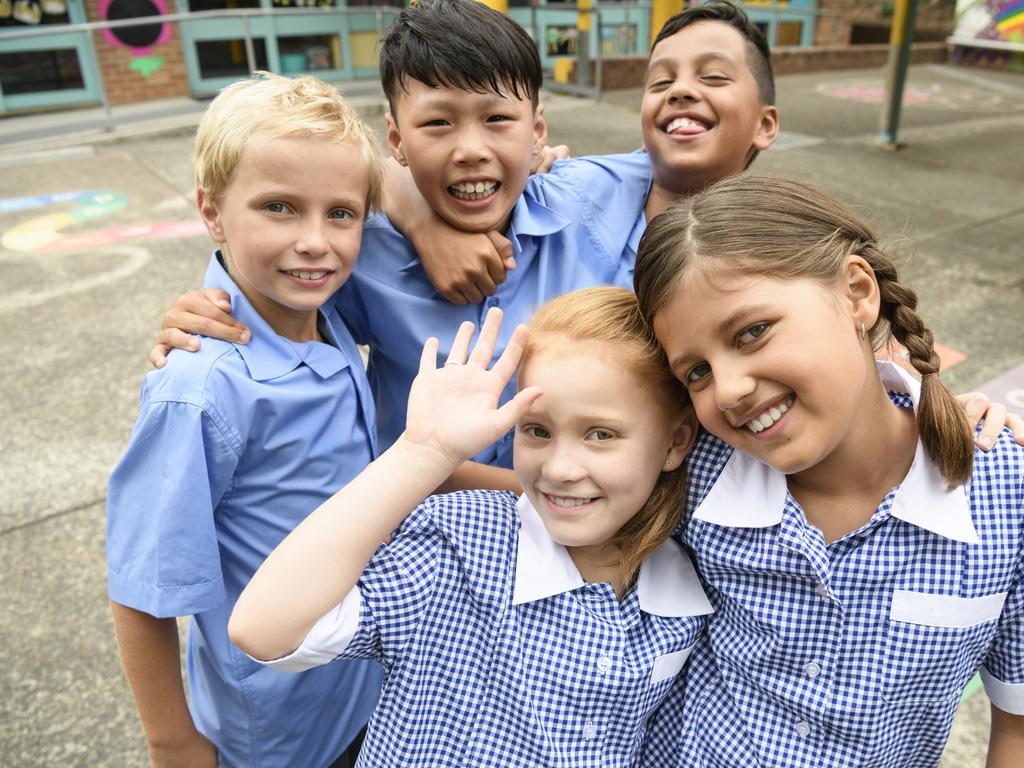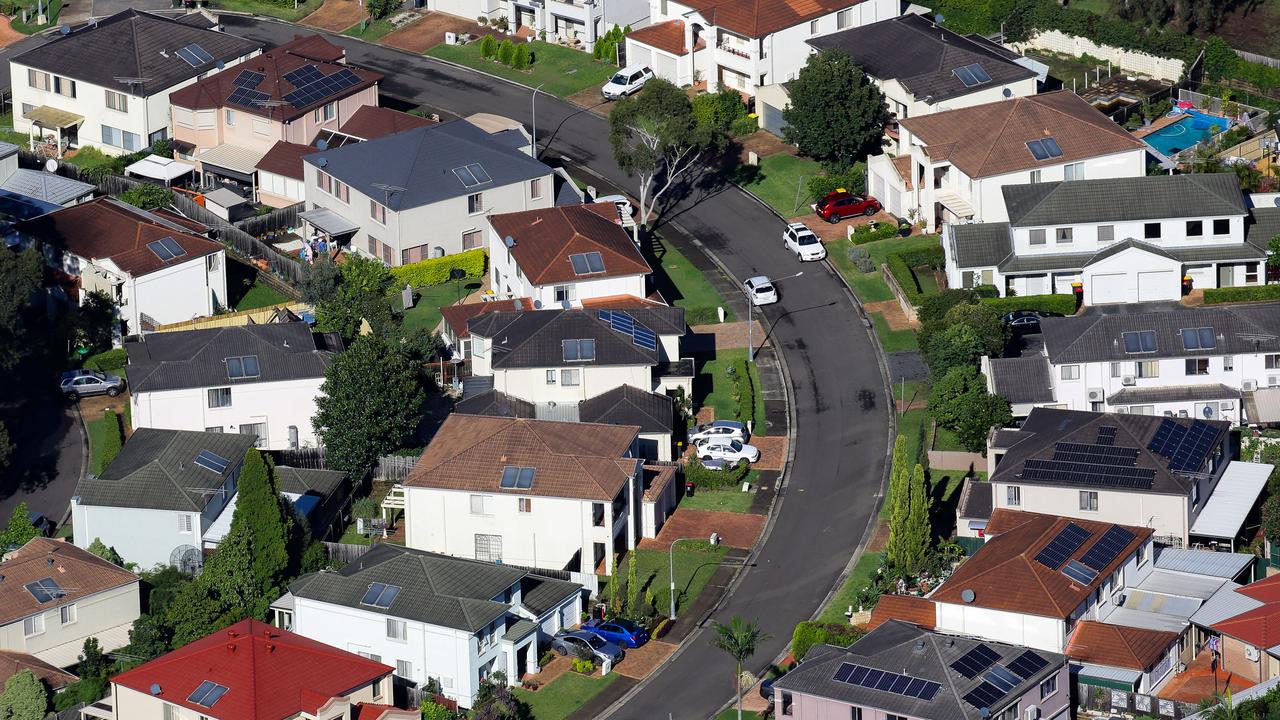Maths and science questions Aussie kids fail
Australian school students have been thrashed in a new global exam. But can you answer the questions that year 4 and year 8 students were given? Take our quiz.

National
Don't miss out on the headlines from National. Followed categories will be added to My News.
Maths lessons will be made “more meaningful” for Australian school students after Asian kids thrashed them in a new global exam.
Australian Year 8 students outperformed those in 25 countries, including Italy, New Zealand, France and Sweden, in test results of 15,000 Aussie children made public today by the Australian Council for Educational Research (ACER).
But they were beaten by children from five “Asian tiger’’ economies – Singapore, Chinese Taipei, Korea, Japan and Hong Kong – as well as Russia.
Year 4 maths students fell further behind the rest of the world – with 22 countries performing better in the Trends in International Mathematics and Science Study (TIMSS) exam.
Migrant students in Australia outperformed their Australian-born classmates in Year 8 maths, with 26 per cent of migrant kids ranked as high performers compared to 10 per cent of children who speak only English at home.
City students did better than those in regional schools, and kids from households with lots of books were most likely to do well in the international exams.
ACER deputy CEO Sue Thomson, who compiled the Australian results, said Asia’s success was “a mixture of culture and teaching’’.
“A lot of it is cultural in those countries – there’s a deep respect for learning and they work very hard,’’ she said.
“Countries like Singapore spend a lot of time in the early years making sure all kids can read well.
“I wonder how much of the problem we’re seeing in Year 4 maths and science comes from students not being able to read properly.’’
Dr Thomson said many of the high-achieving migrant students in Australia were from Asian families.
“We have economic immigrants who come here for a better life from Asia, and they bring with them a belief that education is worthwhile and teachers are to be respected,’’ she said.
“Their English language skills are usually good.
“The very high performers will probably be the Chinese and other Asian students.’’
The exam results from 15,000 Aussie students in Years 4 and 8 last year reveal that kids from the ACT, NSW and Victoria topped the nation in median scores.

A jump in high-performing students gave Queensland the greatest improvement in science results over 24 years of testing.
The Northern Territory ranked last in maths and science, with Tasmania and Western Australia also performing poorly compared to the rest of the country.
Only 39 per cent of the nation’s Aboriginal and Torres Strait Islander students met the basic standard for Year 8 maths, compared to 68 per cent of all students.
In South Australia and Western Australia, Year 4 students taking the maths and science tests for 2019 achieved the same or better results than kids who took the test in 1995.
But SA’s high school students in Year 8 slipped backwards over the past 24 years.
Only 11 per cent of Australia’s year 8 students are “high performers’’ in maths – compared to 51 per cent in Singapore.
Aussie kids were strong in applying their knowledge of maths, but weaker in knowing maths facts and reasoning skills, and fell short in algebra and geometry.
The Australian Curriculum, Assessment and Reporting Authority (ACARA) yesterday said mathematics was a high priority for the review of Australia’s school curriculum next year.
ACARA chief executive David de Carvalho said classroom teachers and curriculum experts were being consulted about potential revisions.
He said the changes would “ensure we have a rigorous mathematics curriculum, one that sets high standards, gives teachers greater clarity about what they are expected to teach, and makes mathematical learning more meaningful to students’’.
“This will help us to continue to improve outcomes in mathematics over time,’’ he said.
Nearly 15,000 Australian students from 571 schools were tested on their maths and science knowledge in the global test, which involved 580,000 students from 64 countries.
The International Association for the Evaluation of Educational Achievement conducts the test every four years.
In Year 8 maths, the mean score for Australian students was 517, compared to 616 in Singapore and 594 in Japan.
Australian students performed on par with kids from England, the United States and Finland.
In science, Australia’s Year 8 students scored 528 points and were beaten by only six countries – Singapore with 608 points, Chinese Taipei, Japan, Korea, Russia and Finland.
And 74 per cent of Australian students achieved national proficiency standards in science – well above the international median of 61 per cent, but well below the 91 per cent in Singapore.
Australia’s Year 4 students also did well in science, with only eight countries performing better.
The report shows 78 per cent of Australia’s Year 4 students met basic proficiency standards for science – above the international median of 71 per cent but short of Korea’s top mark of 95 per cent.
Originally published as Maths and science questions Aussie kids fail









